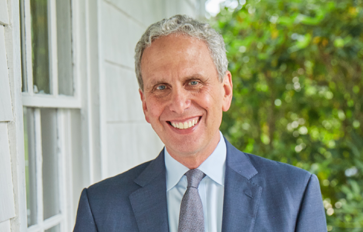Last Updated on April 24, 2025
“The world has simply gotten too intense. The human nervous system was not designed to handle the degree of unrelenting pressure we experience in our lives.”
When Bob Roth was a student at the University of California, Berkeley, this country was in chaos. The war in Vietnam, civil rights protests, and the counterculture movement left him stressed and uncertain. He gave meditation a try and was surprised to find that he liked it. He’s been doing it twice a day ever since. He became a meditation instructor, teaching people like Oprah and Lady Gaga, and thanks to his work with the David Lynch Foundation he’s also brought Transcendental Meditation to inner city kids, military veterans and victims of domestic abuse.
Now, at the age of 72, the most sought-after meditation teacher in the country wants us to know we need meditation now more than ever. Here’s why.
“If something’s wrong physically we can see the wound,” he said. “The ways stress shows is through anxiety, substance abuse and depression. You don’t need a pill to treat it; you need rest, deep rest — which you get through Transcendental Meditation.”
The big difference between the 1960s, when meditation was all the rage, and today is that there is now research to back up Roth’s claims. He told Growing Bolder a Harvard study published in Science Magazine found that twenty minutes of meditation offers the body a more effective rest than six hours of sleep.
“A good night’s sleep will drop cortisol levels by 10%,” he says. “Transcendental Meditation drops cortisol levels by 30 to 40% and nothing else does that.”
Roth believes the many changes that come from aging make meditation an important ingredient in increasing longevity.
“It’s modern life,” he explained. “As we age, we experience enormous social, financial and health pressures to the point where PTSD isn’t just something that happens to soldiers at war. This toxic stress we all encounter raises our cortisol levels which weakens the immune system which means we’ll be sick more often. Cortisol floods the hippocampus in the brain affecting the way we think, leading to cognitive difficulties. As I pointed out, meditation can drop cortisol levels by as much as 40% and nothing else we know of does that.”
He is working now to make meditation a mainstream part of your daily life, too.
“I believe meditation will be integrated into our society through the workforce,” said Roth. “At work they’ll have meditation rooms or quiet rooms where you can take 20 minutes at the end of the day to decompress and reduce those cortisol levels before you go home to be with your family.”
Roth believes Transcendental Meditation will continue to play an increasingly important role in the quality of our health and wellbeing.
“We just have to prioritize ourselves more than we do,” he explained. “We go through life with this attitude of just grinding it out until we retire only to find that life doesn’t work that way and neither do our bodies. All it takes is 20 minutes to meditate. There’s 1,440 minutes in our day. Make the time. You’re going to be more loving with your family, you’re going to be more effective and productive at work, and you’re going to enjoy your life more. Prioritize yourself. You’ll be pleasantly surprised how just a little can go a long way.”
To learn more about transcendental meditation and how you can get started visit TM.org.
This article is featured in the Spring 2023 issue of The Growing Bolder Digital Digest.















